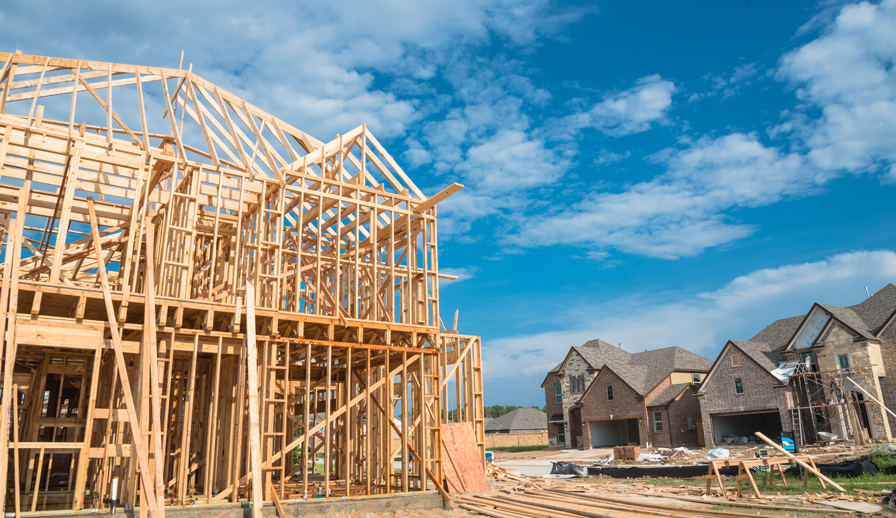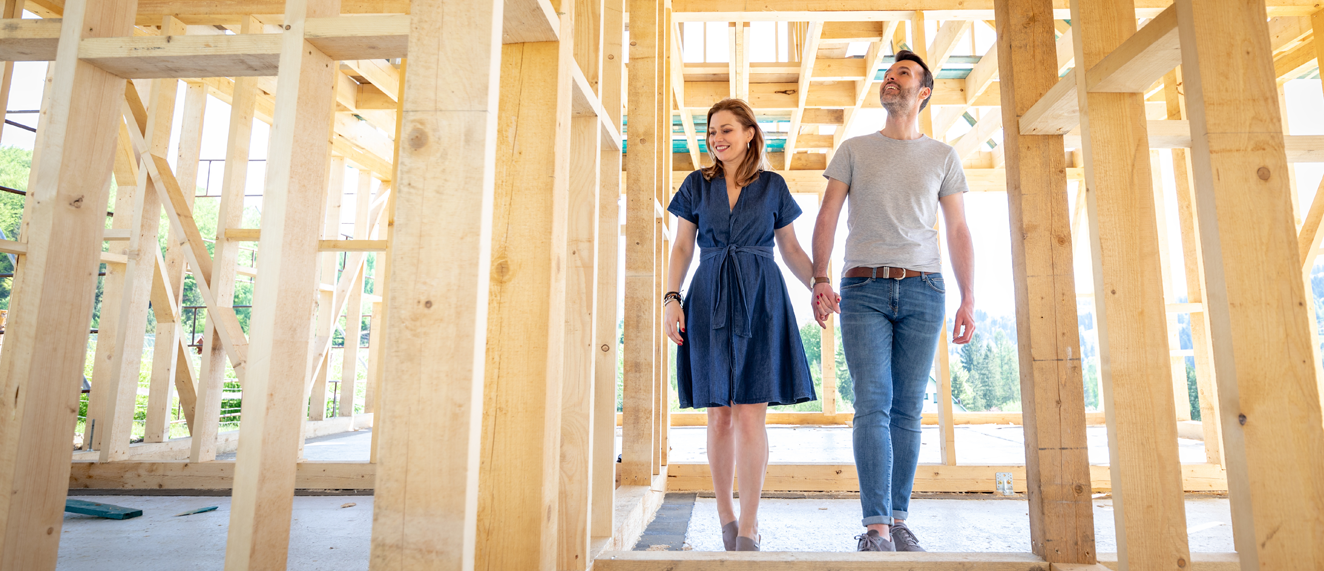For any real estate professional whose clients are looking to purchase any type of new home construction, heed this golden rule, says Toronto broker and REALTOR® Janice Fox: Do your research.
Whether your clients are seeking to buy into a new house already built, a semicustom home as part of a development or a pure custom home built to their personal specifications, you’ll want to help them create a schedule that allows pertinent questions to be asked in advance for the builder and throughout the build process.
While new builds tend to be designed with modern living in mind, have the latest in technology and plumbing, electrical and efficiency systems, you want to steer your clients to reputable builders and include references from people who have bought their finished products.
“No matter what you are buying, it is always a case of buyer beware,” says Fox, who has been involved in every type of home build and sale over the past 30 years. “There is no such thing as a stupid question in this process. Ask everything you want to know and put it in writing.”
Determine the warranty and financial details
The warranty program for a new home will likely provide protection against defects, determine how fit the home is to live in, address construction practices and consider other aspects of the build, so it’s important that your clients understand what it does and does not cover.
Every province has a different warranty program, including Ontario, which along with the provinces of Alberta, British Columbia and Quebec, requires builders to provide home buyers with a third-party warranty.
Elsewhere in Canada, a home warranty is left up to the builder, although Canadian Home Builders’ Association (CHBA) members must offer one as a condition of membership. You can search for professionals on the CHBA website.
“You need to be aware – does my house have a warranty and is it enrolled in a warranty program and if not, why not?” Fox says. “Ask who is backing up the warranty program. And even if you are buying a resale, is the builder offering a warranty? You need to know what might happen if, say, there is a leak in the roof or a crack in foundation.” All these are important questions a REALTOR® should make sure their clients ask.
Another consideration for new construction home buyers in some provinces, like Ontario, Saskatchewan, British Columbia and Nova Scotia, is the provincial sales tax (such as the harmonized sales tax in Ontario). New home construction in these provinces are subject to this tax but a resale is not. Make sure your clients check to see if there is provincial sales tax and if it is built into the new home construction price. Your client may be eligible for the GST/HST New Housing Rebate.
You will also want to make sure your clients ask what protections there are for the deposit and who holds it. In Ontario for example, condo deposits are held by a solicitor and the builder in a trust account but for houses, the deposit can go right to the builder and he or she can use it to build the house.

Make a detailed schedule and checklist
Once your clients have covered basics such as securing financing, getting pre-approved for the buy, determining budget, knowing the taxes and having a general knowledge of detail items such as window treatments, it’s important that buyers and builders agree on a schedule where items can get checked off as they are completed, says Fox. There can be delays but having an agreed upon schedule is a great guideline.
What may seem like small details add up to the entirety of the build. For example, how many pot lights per square foot is the builder allowing? What are the appliances, what are the countertops, what are the baseboards and windows, what kind of garage door, what is the heating and cooling system?
“We are talking several pages, here, not a quick list that is five lines,” says Fox.
This schedule should also include a payment structure: what buyers
need to pay and when. Often with new builds you are making payments in
installments, but make sure this is all laid out ahead of time.
Buyers should also be aware that any upgraded features could mean upgrades in
your payments. As their trusted advisor, you should be able to help decipher
any confusing clauses in fine print.
Research the lot and the neighbourhood
When purchasing preconstruction, it’s important your clients look at what’s happening in the neighbourhood. If it’s a new subdivision, is a change in the demographic bringing more young families into it and, if so, are there provisions with the municipality for a new school—or does the existing school have enough capacity?
“Lots of times we see new subdivisions go up but there isn’t adequate public transportation or schooling,” says Fox.
If your client is buying an infill where an old house has been torn down for a new one, you want them to determine what’s on the lot environmentally. For example, old houses might have been on an oil heating system and you want to know if there is perhaps a buried oil or propane tank on the property.
“Even if an old pool has been filled in, you want the builder to warrant it, because it could impact your insurance later,” says Fox. “You want to determine things like, did they keep the old foundation or is it brand new?”
There can be other surprises along the way, such as restrictive covenants common in subdivisions, which can prevent residents from erecting, say, clothes lines or fences over a certain height.
It’s common to see a registered easement for electricity wires that run across the back of land, which means utility companies can have the right to cross your property, says Fox. So, if your clients want to build a pool, there could be easements that would prevent them from doing so.

Make sure there is an inspection
Vancouver REALTOR® and agent Ron Basra, of Re/Max Select Realty, has specialized in spec homes during his 25 years in the business.
He recommends to buyers that, aside from researching the builder’s reputation, they need to get a reputable inspector to ensure the job has been done right.
“When you do your research on the builder, see if they are just doing it part time and if she or he has any claims against them under the warranty program,” says Basra. “Look at previous homes the builder has built and, if you can, talk to homeowners who have purchased before you.”
In the end, buying new home construction is a considerably different process than with resale homes.
There can be delays, usually more money has to be paid up front (although new builds can have the advantage that a price can be locked in early) and warranties and any upgrades need to be well understood by the buyer.
As a REALTOR®, the more you understand the nuances of buying new home construction, the better able you will be to serve your clients.




